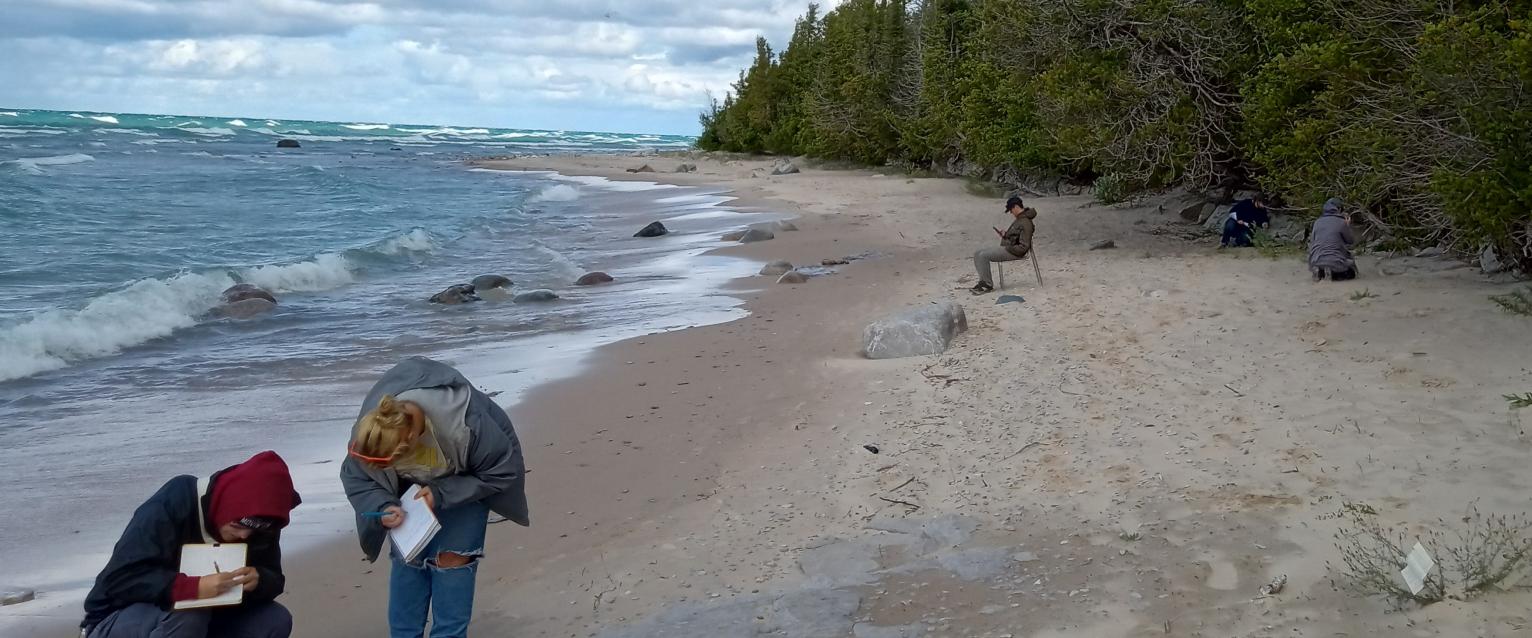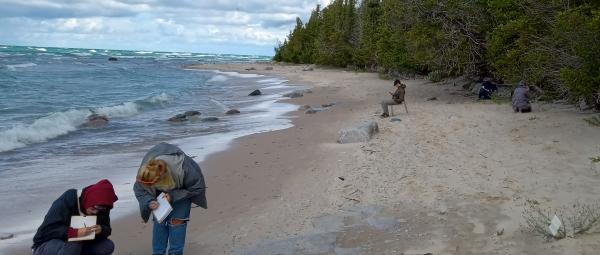Why geological and environmental sciences?
Geoscientists help solve critical societal issues. Expertise in the geosciences is highly valued, and geoscientists are some of the best compensated professionals around. Careers include professional and administrative roles in the energy, natural resources, and carbon sequestration industries, remote sensing and GIS mapping, water resources and hydrogeology, environmental consulting, and climate science. Our programs offer an interdisciplinary education, with a strong focus on hands-on experiential learning. Our graduates are highly successful in getting offers for the jobs they want. The department offers:
- a welcoming and inclusive learning community
- personal attention from faculty/staff
- hands-on research alongside expert faculty
- resume experiences outside of the classroom
- small class sizes
- excellent job placement for graduates
- well-equipped laboratory facilities
- course-based field trips and research opportunities
- internship opportunities at the Michigan Geological Survey
- an active student-run geology club
- robust alumni network
Academic Programs
All of our academic programs focus on a fundamental understanding of the science, as well as application of the science through diverse field, laboratory, and classroom experiences that can prepare our students for successful career opportunities. We promote a supportive environment where our caring faculty provide personal guidance and mentorship, and students can freely explore a wide range of disciplines that align with their interests. For more information, follow the link below that aligns with your interest.
- Undergraduate degree options
- Certificate options
- Field Courses
- Masters degree options
- Doctoral degree options









